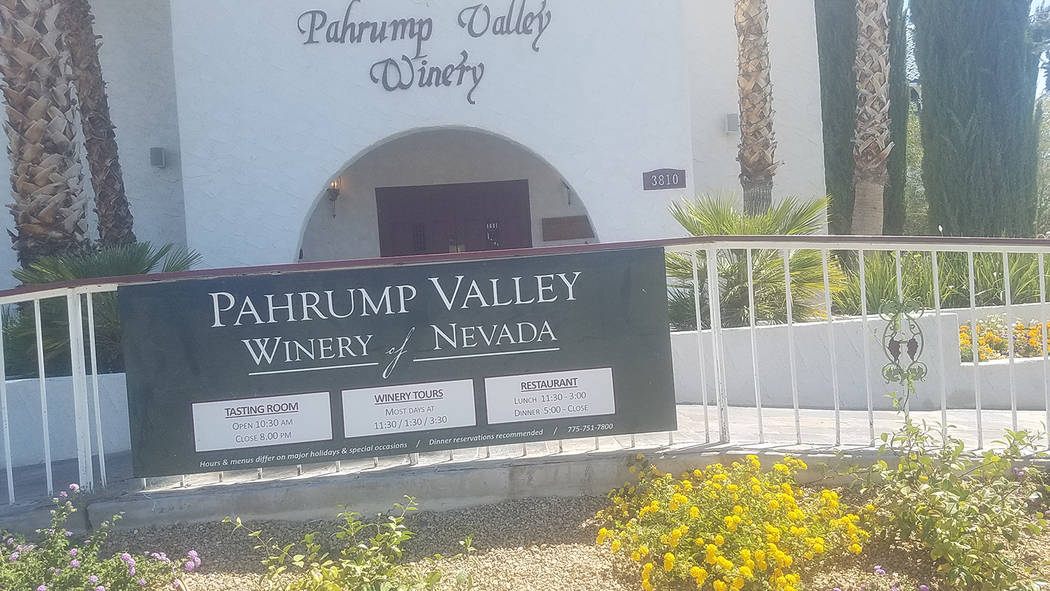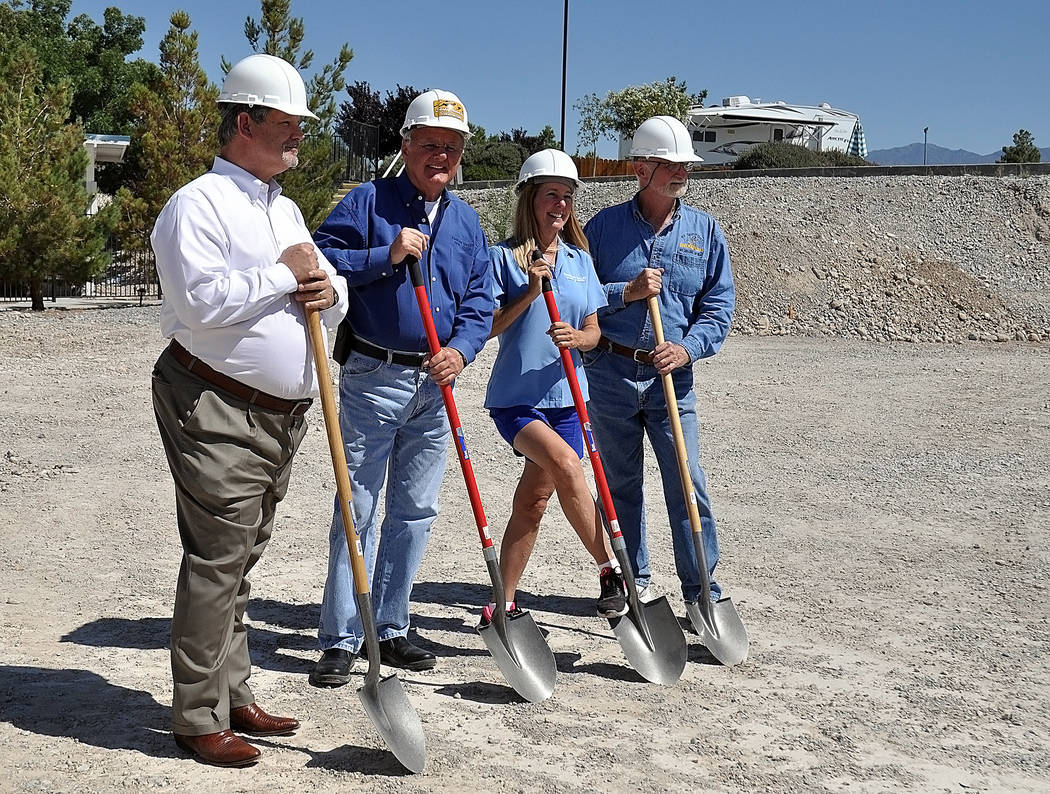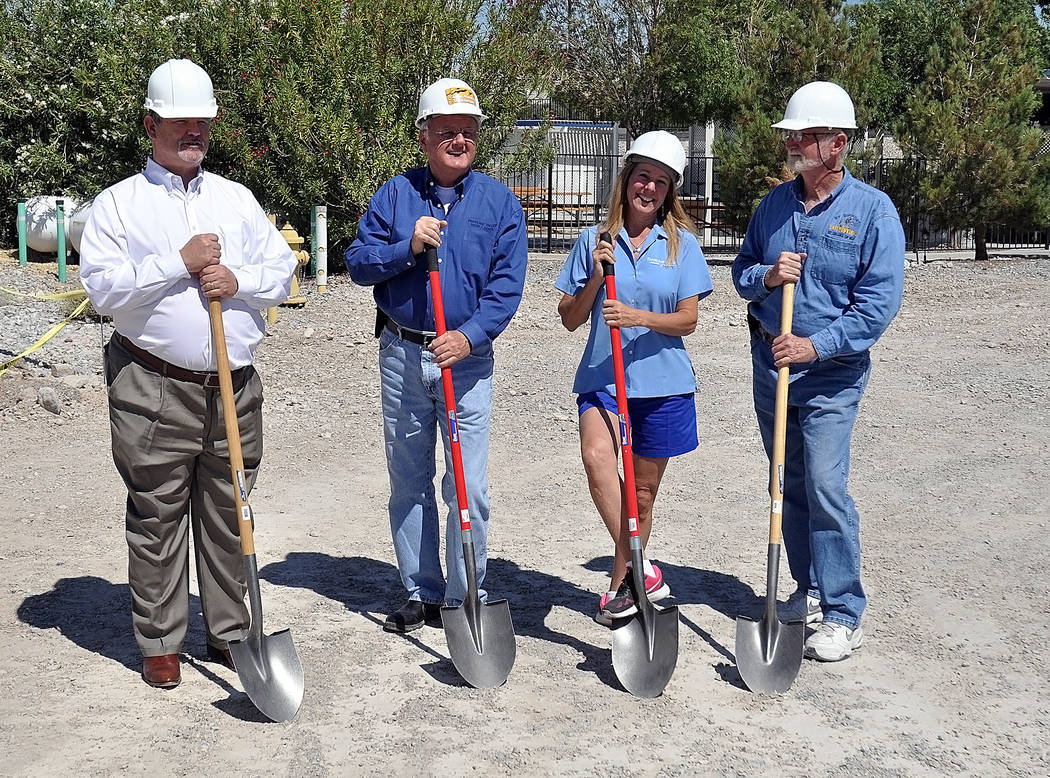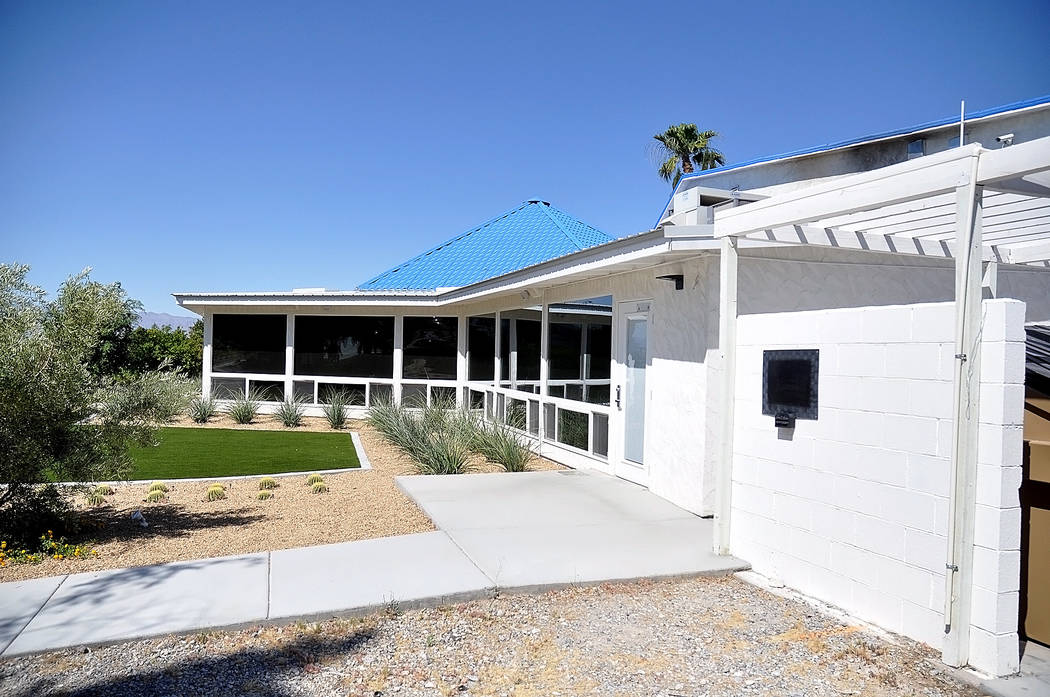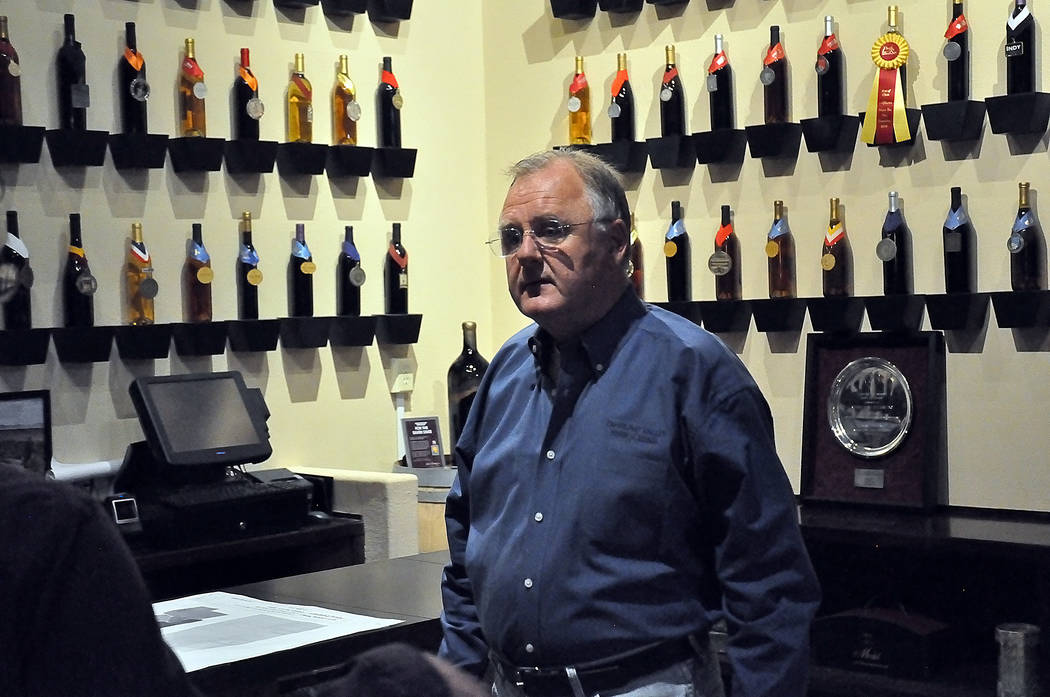A look at plans for Pahrump Valley Winery expansion
The Pahrump Valley Winery, already the leading producer of wine in the state of Nevada, is expanding its operations. Production could grow by five times of what it is today on the site.
Owners Bill and Gretchen Loken broke ground on a 7,000-square-foot production facility on Wednesday at the winery’s campus at 3810 Winery Road, just north of Nevada Highway 160 and Homestead Road.
Bill Loken said he is investing just over $1 million to add space for production, storage and bottling operations. The winery currently operates out of an 1,800-square-foot facility.
The new facility will sit directly behind its main building that contains a tasting area, production facility and gift shop. The new operations would enable the winery to go from producing 9,000 cases annually to between 40,000 and 50,000 cases a year, Loken said.
Construction began on Wednesday. Loken anticipates completion on the production facility to be at the end of 2017.
Loken and his wife purchased the facility in 2003 from then-owner Jack Sanders who owns and operates the Sanders Family Winery at 3780 East Kellogg Road in Pahrump. Sanders opened that operation shortly after the sale to the Lokens.
The Lokens are from Arizona where Bill worked in the real estate industry and his wife was a school teacher.
“We were looking for something different to do, and we heard about this winery,” Bill Loken said.
At the time of the purchase in the early 2000s, Loken said the property was in rough shape.
The couple had to do a complete overhaul, gutting the entire building. The tasting room was added onto, along with adding new wine-making equipment. Loken said the restaurant has been doubled in size since the purchase. It was also renamed Symphony’s Restaurant.
The property has gone through multiple upgrades over the past 14 years Loken said, with Wednesday’s announcement being the third.
New legislation creates a new chapter in Nevada’s wine industry
Loken said the announcement is in direct reaction to a law that passed during the 2015 legislative session that has helped grow Nevada’s wine industry.
Nevada Assembly Bill 4, which took effect in October 2015, allowed wineries to set up shop in any county in the state. The previous law, written in the 1980s, only allowed for wineries to set up in counties that had fewer than 100,000 people.
The legislation also requires that 25 percent of the grapes must be grown in Nevada after the first 1,000 cases sold, which Loken pushed for at the Nevada statehouse. Loken said this was an important point in the law because it protects local industry from being overrun by out-of-state operations.
“If we only do nothing but import California wine, we’re not growing the Nevada wine industry, we’re growing the California wine industry, who just have retail outlets,” Loken said.
The legislation’s passage has done its job helping local operations. The number of vineyards Loken works with has grown by four times in the past couple of years. At that time, the local winery was growing on about seven acres of land. At the end of next week, through cooperative agreements with vineyards across the state, the winery will be growing on nearly 30 acres, he said.
Loken gave an example of the growth in the industry with a vineyard he uses in Amargosa Valley that grew on five acres for the past several years. In 2016, that operation added another five acres and this year, an additional five acres was planted on, Loken said.
Loken is also working on partnering with Queensland Vineyard in Dyer, Nevada, in an area also known as Fish Lake Valley. Close to 10 acres of vineyards were planted in that region in the last two years, spurred on by the the legislative change, Loken said.
The culmination of the planned expansions around Nevada is what spurred Loken to expand his operations, as it takes about two to three years to get a viable crop that will produce wine products.
To date, Loken said he produces about 25 percent, maybe a little more, of the 9,000 cases that leave his winery today.
Winery startups
Despite a good thing in the works for local vineyard operators, some see the new legislation as a difficult path for startup operators.
“The trouble is now we have some smaller wineries that would like to relocate from California to here, and they’ve requested that in order for them to bring the production here, and make the investment in growing grapes, that they would need that cap to be probably 3,000 cases,” said Randi Thompson, a lobbyist for the Nevada Wine Coalition, a group that supports the expansion of Nevada’s wine industry.
A major setback for operators in Northern Nevada is that in colder climates it takes up to seven years to grow grapes, compared to Southern Nevada, where growing can take less than half of that time, according to Thompson.
“In the meantime, you want to be able to establish your name and sell your product and then eventually add in the Nevada grapes,” Thompson said.
The resources to start a winery are also difficult to come by with equipment and other costs. Thompson said action at the statehouse in the 2017 legislative session helped with this. Smaller wine producers were allowed to come together and share resources under one roof after the passage of Assembly Bill 431.
Several new wineries have come online in the past couple of years: Grape Expectations in Henderson and Twin Mustangs Vineyard in Sparks. An unnamed operator in Reno is just getting started in direct relation to AB431, Thompson said.
Positive signs for local tourism
Locally, the tourism industry could be positively affected. Loken said his current flow of customers adds up to 100,000, with 75 percent of that coming in from Las Vegas. The next phase of growth in Pahrump could lead to agritourism, he said.
“We’ve got the racetrack down the street that’s going to expand; it’s only going to bring more people to this community,” said Nevada Assemblyman James Oscarson, R-Pahrump.
“With the freeway expansion up, the expansion of the two-lane road coming all the way up and over the mountain, this is a bedroom community of Las Vegas,” he said. “What better way for someone to start or end their vacation than coming to a great winery, having great food and taking some great wine home.”
Oscarson said Pahrump should expect more tourism as growth in operations such as the winery occurs. But growth could take some time.
“You plant the vineyards and it takes a few years to start producing, then it takes another year or so before the wine is ready for sale,” said Loken. “You really have to be looking at 10 to 20 years out, instead of an immediate six months or a year.”
Contact reporter Jeffrey Meehan at jmeehan@pvtimes.com. On Twitter: @pvtimes


